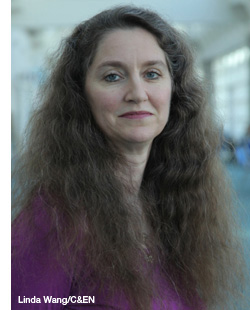
This post was adapted from content on the Career blog of the American Chemical Society (ACS) with the kind permission of ACS and the author.
I recently took a big family vacation, which required a lot of planning, organization and communication. As I thought about how we prepared for and experienced the trip, it occurred to me that this process parallels the career transition process.
Have discussions with interested parties.
When we decided to take a trip, we started by gathering everyone involved and talking about where we wanted to go. Before long, we had agreed to a basic itinerary. In the same way, when you’re thinking about the next phase of your career, you want to start by discussing various options with other interested parties. You may have a general idea of where you want to go next, but it will be modified by input from others: a spouse who can’t relocate, a desire for more or less travel, etc. Eventually, you will come to an agreement about what is required in your next professional destination.
Do the research.
Once we had our list of destinations, we obtained as much information as possible about each one. As a result, we added some things to our itinerary and deleted others. Learning about our destinations, their history and current offerings let us know what to expect and allowed us to enjoy the actual visit more. Similarly, researching prospective career options will reveal hidden aspects that will make them more or less attractive to you. The more you learn about a new field or position, the better you will be able to determine if that path is right for you.
We talked to people who had recently visited these locations, as well as those who currently lived there. When researching new career options, talk to people who have been in the field for a long time, as well as individuals who have just moved into the area. Both novices and experts have useful information that cannot be found in a printed publication.
Think about what you’ll need.
Before we could leave on the trip, we had to think about what we would need for the journey. Some things we already had, but others we had to go out and find. Similarly, a new job or career path may require new skills, which you will have to acquire through education or experience.
Stay flexible.
Once on the trip, we mostly followed our itinerary. However, we had purposely left some time unscheduled. An advertisement we saw while traveling made us aware of a new attraction, and we used one of the gaps in our schedule to visit it. That detour turned out to be one of the high points of the vacation for everyone! Just like in your career path, taking advantage of an unexpected opportunity can lead you in a direction that you never knew you would love. You should always be on the lookout for new professional experiences, and don’t be afraid to take a chance and try something different.
Learn from your experience.
Now that we‘re back home, the only thing left to do is sort through the photographs and put them neatly into a scrapbook for whenever we want to revisit our adventure. The sorting and reflecting is important, as it allows us to look back at the experience and learn from it for the next time. When you move on to a new stage in your career, take time to review the highlights and lowlights of the previous stage, or even your entire career—maybe while you’re updating your resume. Reflecting on your professional journey to date can provide valuable insights and prepare you to make more informed decisions about your next destination—be it vocational or vacational.
This article was written by Lisa M. Balbes, Ph.D. of Balbes Consultants LLC. Lisa is a freelance technical writer/editor and author of: “Nontraditional Careers for Chemists: New Formulas for Chemistry Careers,” published by Oxford University Press.
